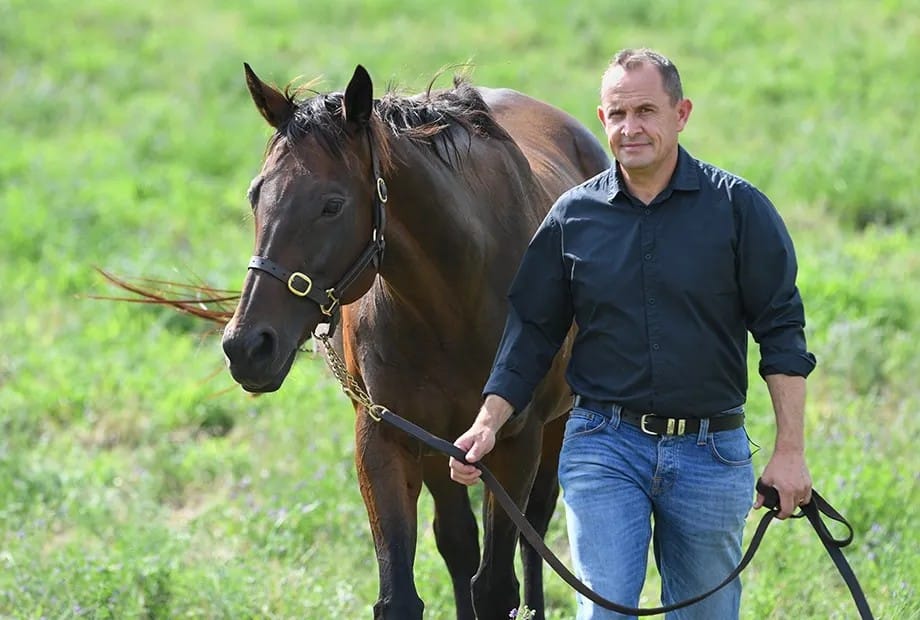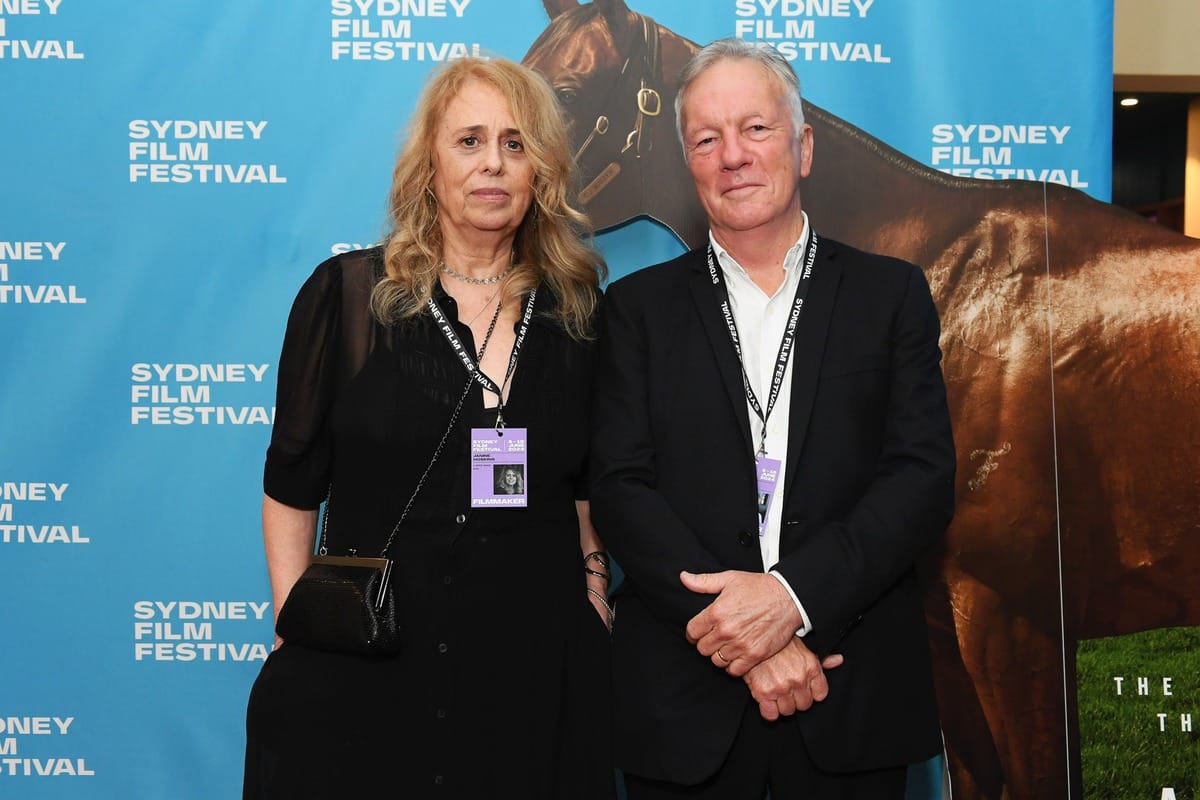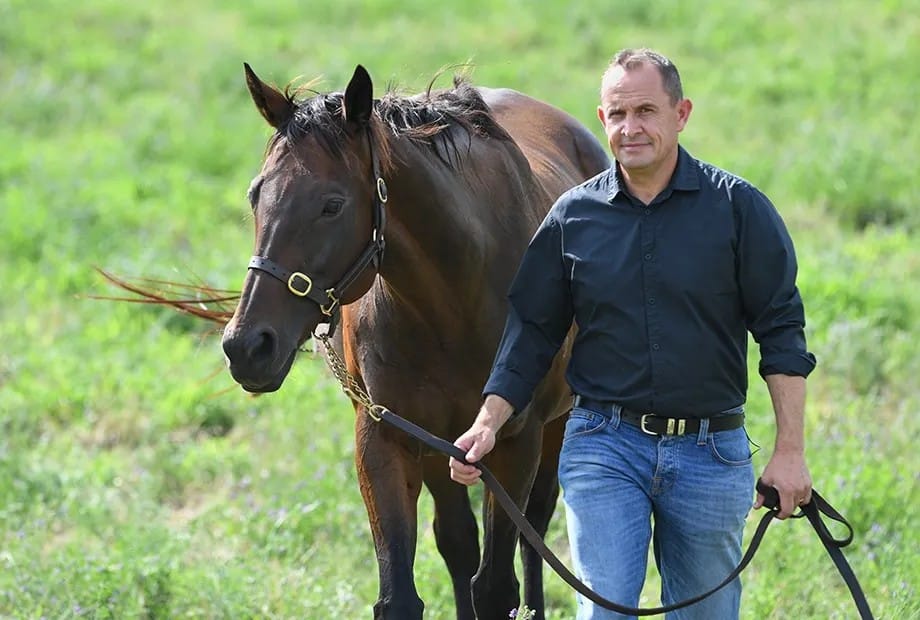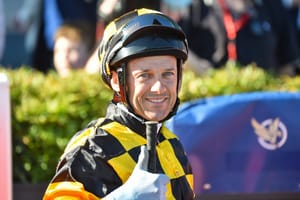Journalist Andrew Rule has always written brilliantly about the ordinary and the extraordinary. Writing about Winx, and having it turned into a feature film, is something else, he tells Matt Stewart.

The word is out. The Winx doco is a cracker.
This is great news because the ecstasy and agony story of our greatest racehorse carries a weight beyond the box office when it has its cinema release on September 5.
Its cinematic fortunes will partly provide racing with a barometer of its relationship with the world beyond it.
Can the story push beyond the push against horse racing?
A Horse Named Winx is by all reports a story that pierces the drifting racing bubble via the sheer power of it; the irresistible theme of the fine line between invincibility and vulnerability.
Ride Like A Girl burst the bubble. It was the highest-grossing local film of 2019, pulling $11.5 million at the box office. The magic ingredient was a theme that resonated: a girl smashing the glass ceiling, trampling a final frontier.
It’s hard to gauge the ongoing impact for racing of bums on seats in cinemas but the popularity of the story of Michelle Payne and her brother Stevie proved in many ways that racing is a mirror to society rather than enemy of it.
In retrospect, Ride Like A Girl was more of a midday movie than a cinematic classic. Racing folk groaned at male characters who seemed drawn from the 1970s.
With the Winx documentary there is no twisting of the story or rose-coloured glasses. It runs almost two hours and is reportedly raw and real.
Since Ride A Girl, racing’s achilles heels of gambling and animal welfare have become burdensome. The anti-gambling push has led to government-imposed advertising and in-play restrictions.

The welfare conundrum appears to have reached a nationwide crisis. There are simply too many horses and not enough retirement paddocks. This has become a major talking point within the bubble and will soon burst out of it. It’s a matter of time.
Walls are closing in.
Against this, we have the story of Winx where the human element runs alongside the exhilarating story of a horse who pushed her trainer Chris Waller to mental limits. There was racetrack glory and then a foaling tragedy before a miracle birth. There are quaint and colourful players previously unseen. They are part of the tapestry of a story carrying hope and expectation and now just weeks from mainstream launch.
Legendary crime reporter Andrew Rule wrote the book and wrote the script for the documentary, which he also narrated.
Rule has written often about horse racing, a sport he has enjoyed since he rode slow coaches at the East Gippsland picnics. He has been more arms-length observer than part of the “industry”; a term Rule’s late contemporary Les Carlyon always despised.
Rule resides far enough outside the bubble to see where this one-time Sport Of Kings fits in.
He hopes the Winx doco will shed some light. He expects it to burst the gates on September 5.
“It’s brilliantly done and genuinely moving,” Rule said. “There is no exaggeration. It’s all real. The tears are real, the insight into the turmoil and the stress of what was going on is real.”
If A Horse Named Winx succeeds, it will do so against mounting challenges, Rule said.
“I think this documentary will be important, and interesting, because it does reach beyond the bubble to the wider public in a way like racing used to when a household name in racing was truly a household name,” he said.
Rule said racing had declined “in a community sense” significantly in the past 30 years - but rapidly in the last five or six.
Certainly, in the handful of years since the era of Winx.
“There are always little spikes, like Michelle Payne or Black Caviar or Makybe Diva or Winx but the general story is one of decline. The graph is sinking unfortunately,” Rule said.
“There are reasons, of course, nor least of all that there are so many other things to occupy people’s minds. Sports betting being one.”

Rule said that there was also a more general shift.
“There’s been a social and political swing that probably corrodes racing’s popularity with the neutral and unaligned. Thirty years ago, we would regard those protesting against racing as a ratbag minority,” he said.
“That is no longer the case. There is a middle-class generation with a poor perception of racing.
“We have a situation where in the last five years we’ve had workplaces, like newspapers, that have younger staff members who are opposed to racing. In my experience, particularly young females (in newspapers) are in many cases actively hostile to racing.
“There has been a significant shift in public perception.”
Is it arrestable?
“It sort of brings me back to Winx. I think her career won back for racing some of the goodwill and I think this film, perhaps even more so than the book, will continue that,” he said.
“This film is a feel-good thing. It’s more than the story of a horse who kept winning. It is truly insightful. It’s not just a string of cliches. It is very skilfully made.
“Chris Waller is a revelation. He reveals, graphically, the unbelievable stress he was under to keep it (the 33-win streak) going. His tears were real. He thought that if she got beat, it would somehow be his fault,” Rule said.
“There are always little spikes, like Michelle Payne or Black Caviar or Makybe Diva or Winx but the general story is one of decline. The graph is sinking unfortunately” - journalist Andrew Rule
Waller’s wife Stephanie reveals her fears that the pressure would tip her husband over the edge; a universal household theme.
“Hugh Bowman provides unbelievable insight into what it was really like to be on her back,” Rule added.
The tragedy of Winx’s first foal, who did not survive, is revealed by Coolmore’s Tom Magnier who feared for mother and foal. Magnier rang Winx’s owners with the most haunting words: “I don’t think she’s going to make it.”
Rule was at a pre-screening where “it hit like a hammer blow” when the story turned to the uncertain fate of Winx. “You couldn’t hear a pin drop. It was high drama, genuine stuff,” he said.
The documentary was directed and filmed by the celebrated Janine Hosking.
“She made it against a backdrop of people in her demographic who would probably not have been supportive of horse racing. I think she saw that as a challenge,” Rule said.
“The film does draw you in. I had no interest in Formula One but Drive To Survive took us into a world of characters, scheming, winners and losers. It hit a popular chord.”
“I think the value of this Winx film will be that it throws a rope to those Australians who are drifting away from racing.
“There are lots of cameos, like the humble horse-breaker who was the first person ever to ride Winx. They are all illuminating and touching.
“All the components are wonderful but above that, this film is greater than the sum of its parts. I think that’s a rare thing.”







